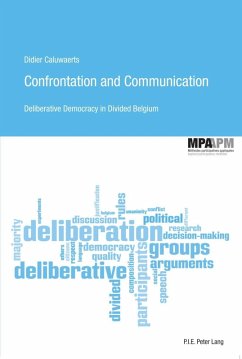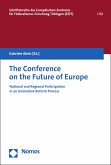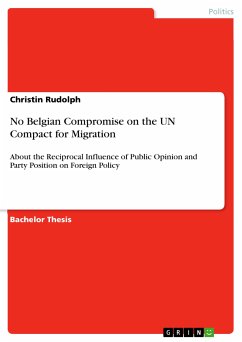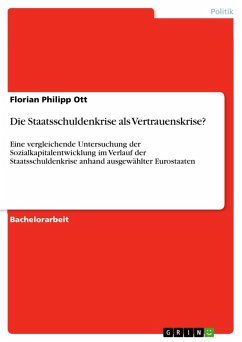This book has won the Jean Blondel PhD award of the European Consortium for Political Research (ECPR), and was nominated for the Annual PhD Prize of the Dutch and Flemish Political Science Associations.
Theories on ethnic conflict tend to work on the premise that a deeply divided public opinion undermines democratic stability, and that conflict-ridden polities are not fertile ground for the development of a strong democracy. Democratic stability in divided societies is seen to be endangered whenever the demos plays too prominent a role, so the commonly formulated solution is that citizens should remain passive.
This book addresses the role of citizens in such divided societies while they are facing political conflict. It offers interesting new perspectives on the potential of deliberative democracy as a viable alternative in the case of deeply divided polities. The author uses cutting-edge data from a deliberative experiment in Belgium, where he gathered Flemings and Walloons to discuss the future of the country at a moment when the tensions between the linguistic groups were at an historic high. His findings are insightful and interesting for deliberative theorists and practitioners, as well as for scholars of ethnic conflict.
Theories on ethnic conflict tend to work on the premise that a deeply divided public opinion undermines democratic stability, and that conflict-ridden polities are not fertile ground for the development of a strong democracy. Democratic stability in divided societies is seen to be endangered whenever the demos plays too prominent a role, so the commonly formulated solution is that citizens should remain passive.
This book addresses the role of citizens in such divided societies while they are facing political conflict. It offers interesting new perspectives on the potential of deliberative democracy as a viable alternative in the case of deeply divided polities. The author uses cutting-edge data from a deliberative experiment in Belgium, where he gathered Flemings and Walloons to discuss the future of the country at a moment when the tensions between the linguistic groups were at an historic high. His findings are insightful and interesting for deliberative theorists and practitioners, as well as for scholars of ethnic conflict.
Dieser Download kann aus rechtlichen Gründen nur mit Rechnungsadresse in A, B, BG, CY, CZ, D, DK, EW, E, FIN, F, GR, HR, H, IRL, I, LT, L, LR, M, NL, PL, P, R, S, SLO, SK ausgeliefert werden.
«(...) die Studie [besticht] durch ihre prägnante und präzise Sprache, ihre differenzierte Aufbereitung des experimentellen Settings sowie die detaillierte Auswertung mitsamt den darin enthalten Interpretationen. Für die Auseinandersetzung mit empirischer Demokratieforschung - und für die Auseinandersetzung mit dem Phänomen Belgien - ist der Band definitiv ein Gewinn.» (Matthias Lemke, Portal für Politikwissenschaft 05/2013)




